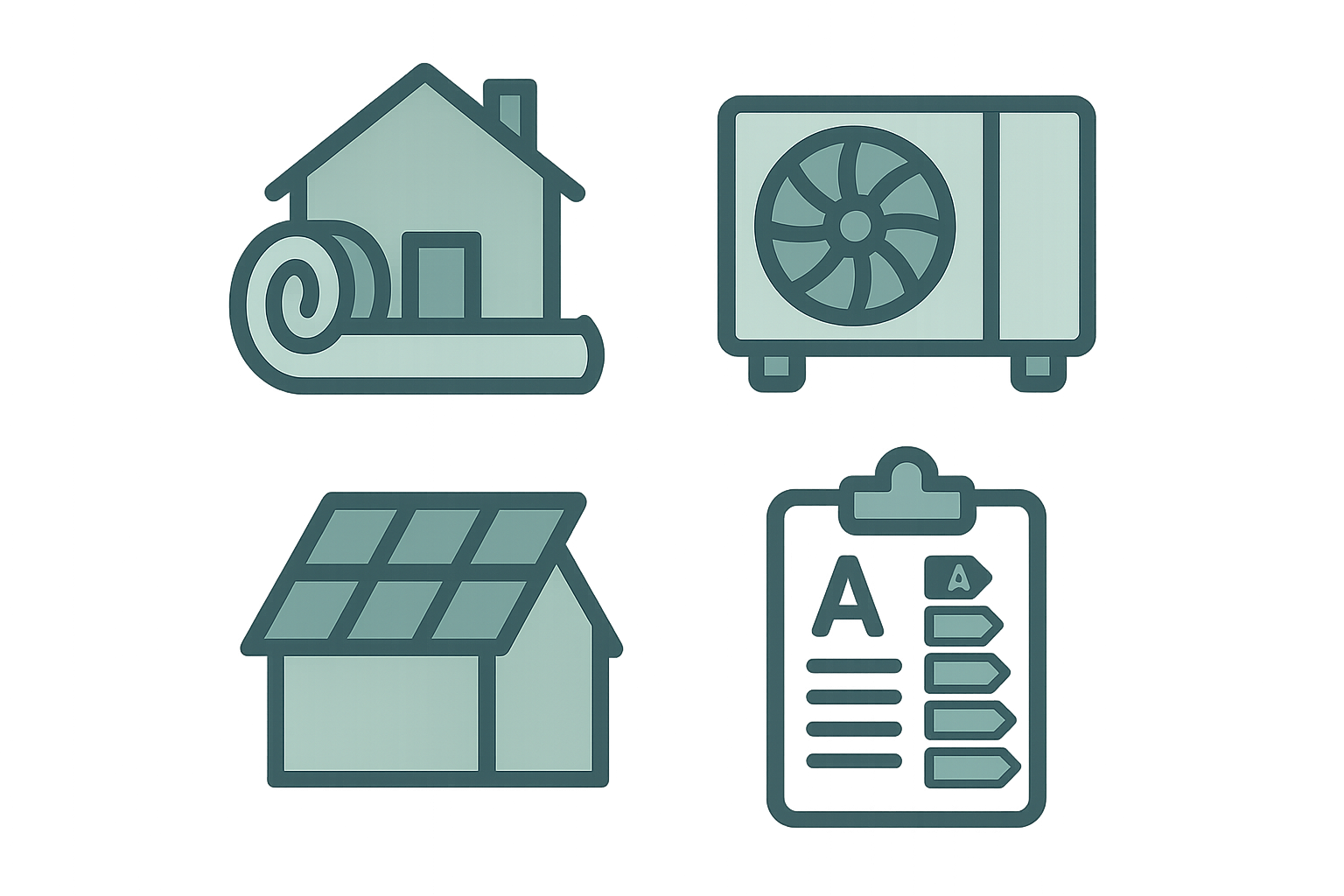Home Deep Retrofits — Warmer, Cheaper, SEAI-Backed
Why Older South-Co Dublin Homes Need a Deep Retrofit

Deansgrange Semi-D — From BER F to A3
A 1968 semi-detached house leapt four BER bands after a full fabric-first retrofit, cutting annual heating spend by roughly one-third. Works ran in one season; grants were handled through our partner Electric Ireland SuperHomes, so the homeowner paid only the net figure on the invoice.
No-Surprise Pricing
We issue a fixed-price proposal only after the heat-loss survey. Your SEAI grant appears as a line-item deduction, so the figure you sign is the figure you pay.
How Long Does It Take?
Most projects complete inside a single season on site. Fabric upgrades dominate the early phase; systems and commissioning follow; airtightness test and BER certify the finish.
Frequently Asked Questions
How much does a full deep retrofit actually cost?
A “whole-house” upgrade in Ireland now runs somewhere between €125,000 and €200,000 before grants, depending on size, layout, insulation depth and extras such as solar PV. A mid-range three-bed semi in South Dublin typically lands in the middle of that band. Final price is fixed only after a heat-loss survey.
How much of that can the SEAI cover?
If you use the One-Stop-Shop pathway, grant lines for insulation, heat pump, ventilation and solar are deducted up-front on your invoice, so you borrow or pay only the net figure. Individual grants are also available for a staged approach, and the fully-funded Warmer Homes Scheme covers 100 % for qualifying social-welfare recipients.
How long will the works keep builders on site?
A typical deep retrofit on a three-bed semi takes about eight to twelve weeks on site, once materials and trades are booked. Larger detached homes or architect-led heritage jobs can stretch to the four-month mark.
Do I have to move out?
Most homeowners stay put for all but the messiest phases; Electric Ireland SuperHomes say nine out of ten clients remain in the house throughout. Expect a few days of heavy disruption during floor insulation or internal dry-lining. External insulation and heat-pump installs are far less intrusive.
Do I need planning permission?
Rear, side and roof works are usually exempt, but external insulation on the main front façade or any protected structure needs a quick Section 57 sign-off from DLRCoCo. We flag this during survey and handle paperwork if it applies.
When will I start seeing savings?
Case-study data and SEAI modelling show 25 – 35 % lower heating bills in the first year after a deep retrofit, with comfort improved immediately. Payback accelerates when energy prices rise—or if you export excess solar back to the grid.
How long does grant approval take?
The One-Stop-Shop route typically approves within 3–6 weeks after your technical assessment, subject to SEAI’s monthly quota. We submit all documents and chase approvals on your behalf.
What is a deep retrofit and how does it differ from standard renovations?
A deep retrofit is a comprehensive upgrade to a home’s energy efficiency, including insulation, heating, ventilation, and airtightness, unlike standard renovations which focus mainly on aesthetics.
Which homes are suitable for a deep retrofit in Dublin?
Most detached, semi-detached, or terraced homes built before 2000 are ideal candidates, particularly if they have poor insulation or high energy costs.
Can a deep retrofit improve my home’s energy rating?
Yes. Deep retrofits significantly boost energy ratings (BER), reduce energy bills, and create a more comfortable living environment.
How long does a house deep retrofit usually take?
Depending on the property size and scope, retrofits typically take 6–12 weeks from initial assessment to project completion.



